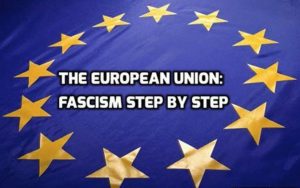Over the past year there has been much discussion over the forging of non-transparent trade agreements that seek to close rather than open trade between the U.S. and Western economies. But for several years the real elephant in the room has been the lack of openness within the world’s largest trade coalition, that being the European Union.
Over the decades the EU has filed lawsuits against companies and corporations that do business within Europe simply because their own businesses were unable to compete with the technology and capabilities of enterprises outside of the continent. For example, one lawsuit by the European Commission demanded that Microsoft unlock its proprietary code so that European companies could compete with the OS giant by using their intellectual property.
Microsoft took action against increased threats from the European Union regarding its demand that the software company provide more sufficient technical information about Windows Server communication protocols. In order to meet the EU’s demands, the company decided to make the Windows Server source code as a licensing option. Microsoft believes this is “going far beyond” what it was legally required to do by the European Commission’s March 2004 decision (see our coverage), one part of which demanded better documentation of proprietary Windows protocols. - Geek.com
Moving forward now into 2016 and we see that the EC is introducing their newest draconian demand meant to protect European media outlets who also appear unable to compete with global online news sites and news aggregators. That action is to implement a tax known as a ‘snippet tax’, which would charge any news or blog site that links a European webpage, article, or site to their own under the auspices of Fair Use.
Europeans plan to create a so-called “snippet tax”which is more officially referred to as “ancillary rights” (and is really just about creating a tax on Google). The basic concept is that some old school newspapers are so lazy and have so failed to adapt to the internet — and so want to blame Google for their own failures — that they want to tax any aggregator (e.g., Google) that links to their works with a snippet, that doesn’t pay for the privilege of sending those publishers traffic. As you may remember, Germany has been pushing for such a thing for many, many years, and Austria has been exploring it as well. But perhaps the most attention grabbing move was the one in Spain, which not only included a snippet tax, butmade it mandatory. That is, even if you wanted Google News to link to you for free, you couldn’t get that. In response, Google took the nuclear option and shut down Google News in Spain. A study showed that this law has actually done much to harm Spanish publishers, but the EU pushes on, ridiculously.
As discussed a year ago, some in the EU Commission are all for creating an EU-wide snippet tax, and as ridiculous and counterproductive as that is, the Commission is about to make a decision on it, and the public consultation on the issue is about to close (it ends tomorrow). - Techdirt
It is both sad and ironic that Democratic Presidential candidate Bernie Sanders is running on a platform that promotes European style Socialism and taxation, and is a torch bearer against free markets. Because his mantra of ‘fairness’ is exactly what the EC’s snippet tax is all about… if you aren’t capable enough to compete against better and more efficient businesses, then tax the profitable one to subsidize the ones that should go bankrupt from their inadequacies.
And is it any wonder that the British people today want to divest themselves from the European Union, since their future and the future of their economy rests in the hands of lunatics who seek to tax a website simply for linking a url from another one?
Kenneth Schortgen Jr is a writer for Secretsofthefed.com, Examiner.com,Roguemoney.net, and To the Death Media, and hosts the popular web blog, The Daily Economist. Ken can also be heard Wednesday afternoons giving an weekly economic report on the Angel Clark radio show.
Don't miss these
- Non Gamstop Casinos UK
- Best Casino Not On Gamstop
- Siti Sicuri Non Aams
- Casinos Not On Gamstop
- Casino Not On Gamstop
- Casino Online Stranieri Non Aams
- Non Gamstop Casino
- Sites Not On Gamstop
- Non Gamstop Casino UK
- Slots Not On Gamstop
- Casino En Ligne
- Casino En Ligne
- Casino En Ligne France
- 信用 できるオンラインカジノ
- UK Casino Not On Gamstop
- Casinos Not On Gamstop
- Casino Online Non Aams
- I Migliori Casino Non Aams
- Siti Casino Online Non Aams
- Non Gamstop Casino Sites UK
- Casino En Ligne Fiable
- Best Non Gamstop Casinos
- Non Gamstop Casino
- Betting Sites UK
- Casino Non Aams
- Crypto Casino
- Meilleur Casino En Ligne Français
- Casinos Belgique
- Casino Online
- Paris Sportif Ufc
- オンラインカジノ 出金早い
- KYC 없는 카지노
- казино онлайн
- Migliori Siti Scommesse
- Casino Online
- Casino En Ligne Fiable
- Casino En Ligne 2026
- Nouveau Casino En Ligne France
- Casino En Ligne
